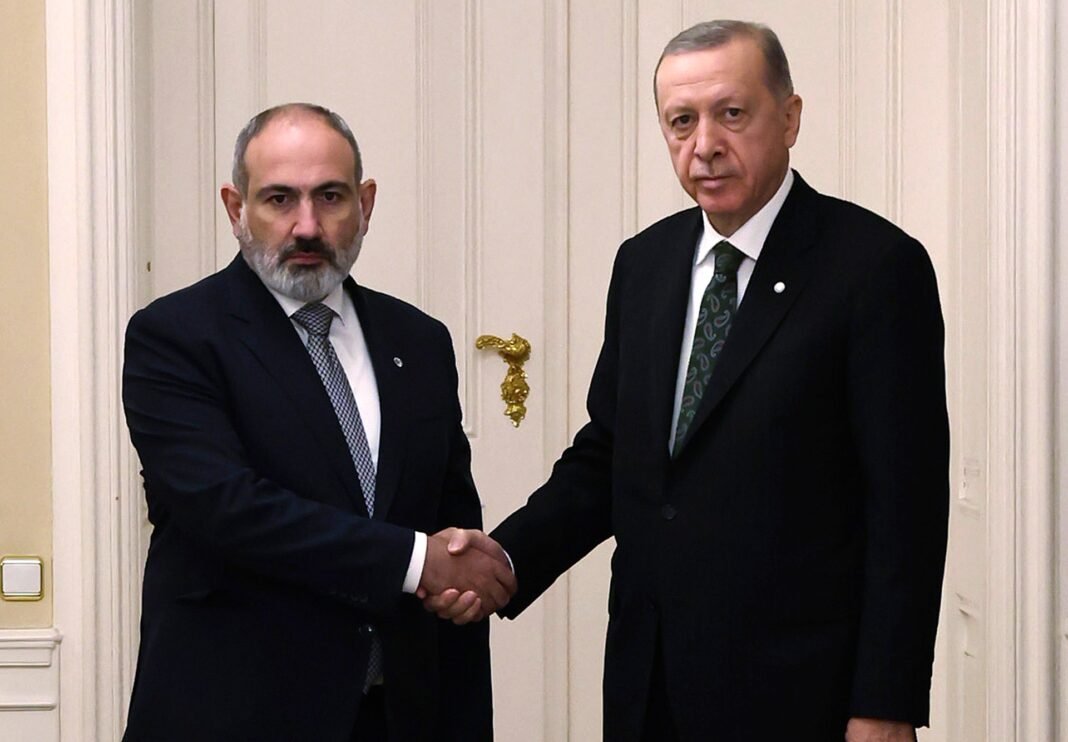Revitalizing Diplomatic relations between armenia and Turkey
The visit of Armenian Prime Minister Nikol Pashinyan to Istanbul marks a pivotal step in Ankara and yerevan’s efforts to restore dialog.
Armenian Prime Minister Nikol Pashinyan recently traveled to Istanbul for high-level talks with Turkish President Recep Tayyip Erdogan. This meeting is widely regarded by Armenian officials as a crucial milestone toward establishing peace and stability in the South Caucasus region.
Opening New Avenues for Regional Cooperation
Alen Simonyan, Speaker of the Armenian parliament, highlighted the historic nature of this encounter: “This is an unprecedented event-the first time an Armenian prime minister has visited Turkey at such a senior level. We intend to confront all urgent regional issues.” He noted that while immediate threats of armed conflict with Azerbaijan have lessened,sustained diplomatic engagement remains essential for durable peace. Pashinyan’s presence in Turkey symbolizes meaningful progress on this front.
This advancement follows shortly after Azerbaijani President Ilham Aliyev met Erdogan in Ankara,where Aliyev emphasized the robust Turkish-Azerbaijani alliance as influential not only regionally but also globally. Erdogan reaffirmed his dedication to mediating peace between Armenia and Azerbaijan during their discussions.
Navigating Complex Peace Talks amid Evolving Conditions
In March 2025, Baku and Yerevan agreed on a preliminary draft aimed at resolving their longstanding conflict; however, Azerbaijan later introduced new stipulations-including demands for constitutional reforms within Armenia-that have delayed formal ratification of the agreement.
Pashinyan’s scheduled meetings at Istanbul’s Dolmabahce Palace will focus on advancing comprehensive peace accords between Armenia and Turkey. Representatives from Armenia’s Ministry of Foreign Affairs confirmed that these talks will also address wider regional security concerns shaped by recent events such as Israel’s airstrikes targeting Iranian nuclear facilities-conflicts unfolding just days earlier with far-reaching implications across Eurasia.
The Past Backdrop Influencing Present-Day Relations
Despite sharing a border, formal diplomatic ties between armenia and turkey remain severed since 1993 due primarily to unresolved historical disputes dating back over one hundred years. Central among these is the mass killing of Armenians during World War I within Ottoman territories-widely recognized internationally as genocide but disputed by Ankara, which attributes casualties mainly to civil unrest rather than orchestrated extermination campaigns.
The Impact of Nagorno-Karabakh on Bilateral Dynamics
Ankara’s close partnership with turkic-speaking Azerbaijan further complicates relations amid ongoing tensions over Nagorno-Karabakh-a predominantly ethnic Armenian enclave that declared independence following Soviet collapse decades ago. The 2020 conflict saw significant Turkish support bolster Azerbaijani military advances resulting in territorial shifts confirmed through Russian-brokered ceasefire agreements after six weeks of fighting.
Advancements Toward Reconciliation: Achievements and Obstacles
- Since late 2021, both countries appointed special envoys dedicated exclusively to facilitating normalization;
- A resumption of direct commercial flights occurred last year after pandemic-related suspensions;
- This year saw Pashinyan pause Armenia’s international campaign seeking recognition for the 1915 events as genocide-a contentious decision domestically but interpreted diplomatically as goodwill toward rapprochement;
- Pashinyan attended Erdogan’s inauguration ceremony in 2023-the first official visit signaling thawing relations;
- An earlier attempt at rapprochement took place when protocols were signed in 2009 aiming for diplomatic recognition and border reopening; however strong opposition from Azerbaijan prevented ratification then;
A fragile Path Forward Amid Geopolitical Complexity
This renewed effort highlights how deeply intertwined geopolitical interests influence diplomacy across this volatile area. Nearly three decades since border closures-and millions affected directly or indirectly-progress depends on carefully balancing historical grievances alongside contemporary security challenges involving key players such as Russia, Iran, Israel, and Western nations monitoring Caucasus stability today.
“The journey ahead requires patience yet holds promise: transforming decades-old hostility into cooperation could reshape regional dynamics profoundly.”





